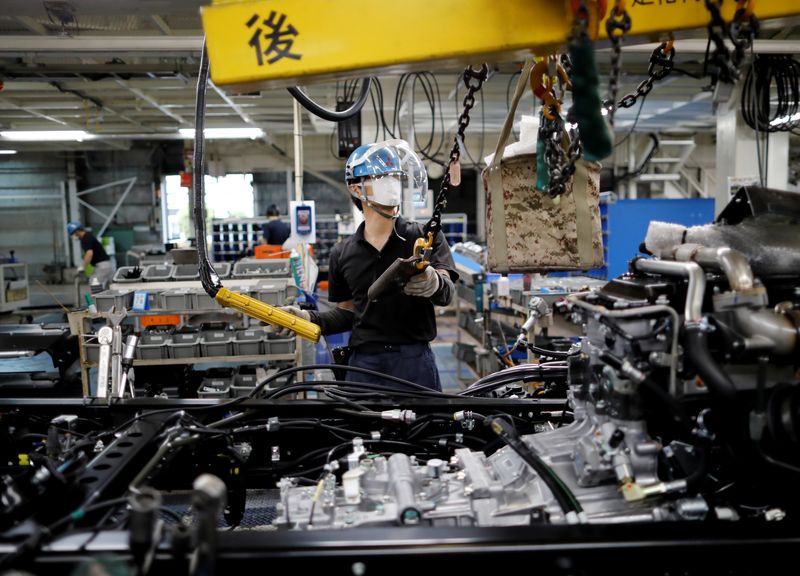TOKYO (Reuters) - Japan's manufacturing activity grew at the slowest pace in 10 months in July as output and new orders contracted, boding ill for an economy struggling to stage a convincing post-pandemic recovery.
Activity in the services sector also expanded at a slower rate, suggesting more subdued demand at home as a weakening yen pushed up the cost of imports, raising concerns about the impact that may have on the economy.
The au Jibun Bank Flash Japan Manufacturing Purchasing Managers' Index (PMI) slipped to a seasonally adjusted 52.2 in July from the previous month's 52.7 final, marking the slowest expansion since last September.
The headline figure was pulled down by the first contraction in output in five months and the first decline in overall new orders since last September. New export orders shrank for the fifth straight month.
Usamah Bhatti, economist at S&P Global (NYSE:SPGI) Market Intelligence, which compiles the survey, said activity for the private sector overall was marginal.
"The expansion in output was the softest recorded since March," he added. "Companies noted that shortages of raw materials and rising energy and wage costs had increasingly dampened output and new order inflows."
"This was notably evident at manufacturers, who recorded a reduction in production levels for the first time in five months," Bhatti said.
The au Jibun Bank Flash Services PMI Index dropped to a seasonally adjusted 51.2 in July from June's final of 54.0, expanding for the fourth straight month.

The au Jibun Bank Flash Japan Composite PMI, which is calculated by using both manufacturing and services, dropped to 50.6 from a final of 53.0 in June.
The 50-mark separates contraction from expansion.